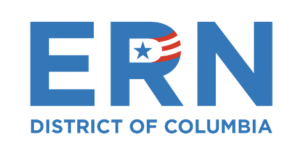
Committee of the Whole Roundtable on DCPS Reopening
01- 21 -2021
Jessica Giles
Deputy Director
Education Reform Now DC
Good afternoon Chairman Mendelson and members of the Committee of the Whole; my name is Jessica Giles. I am a Ward 7 resident, an equity advocate, and the Deputy Director of Education Reform Now DC (ERN DC). ERN DC is a non-profit organization that fights to ensure that DC’s public education system justly and equitably serves all students. We are committed to advancing racial equity in public education, closing opportunity gaps, and regularly evaluating education reforms to see if they are working as intended. The discussion today has focused mainly on how and when students and educators can return to school, which is critical in protecting students’ health and safety, school staff, and the broader community against the spread of COVID-19. My testimony will focus on how the Mayor and DC Council can ensure that DC public schools (DCPS) has a just and equitable COVID-19 recovery by including high-dosage tutoring in its summer plan. We can begin implementing this now, regardless of in-person instruction, and I’ll share how.
First, I want to express my deep appreciation to DCPS principals and teachers for working tirelessly to provide an education to students and all parents, grandparents, and guardians juggling their family and work responsibilities during this time of great uncertainty. COVID-19 is challenging for all students, but it disproportionately impacts Black, Brown, and immigrant communities and has taken a toll on our students’ academic and social-emotional well-being. Last December, EmpowerK12 analyzed assessment results for nearly 30,000 students in DCPS and public charter schools using historical and fall 2020 assessment data. They found that DC students are in a COVID learning and mental wellness slide with an overall loss of four months of learning in math and one month of reading.[1] EmpowerK12 also found that “at-risk students have lost five months of learning in math and four months of learning in reading and are falling significantly behind.”[2] Additionally, “77 percent of students reported they are concerned that their family will be exposed to COVID-19 and 45 percent report that their family’s financial situation has become somewhat or significantly more stressful.”[3] Consequently, we could experience an increase in drop-out rates nationwide and a loss of $61,000 and $82,000 in lifetime earnings, or the equivalent of a full year of work for each K-12 student.[4] This loss of earnings could be even greater for Black and Hispanic students. While white students could earn $1,348 a year less over a 40-year working lifetime, Black students could lose $2,186 a year, and Hispanic students could lose $1,809 a year.[5]
DC must include high dosage tutoring as part of its summer recovery plan.
High-Dosage Tutoring (HDT) is one of the most effective interventions in education. It adds about 216 days of additional learning or 1.2 years.[6] A high-dosage tutoring program works by identifying a student in need of a tutor and providing that student with tutoring daily for Pre-Kindergarten and first-grade students and three days per week for second through fifth-grade students during an extended school day. Typically, a high-dosage tutor works with two to three students, similar to “learning pods” that some upper-income families have used during COVID to mitigate learning loss. DC should provide special consideration and flexibility for students with different learning abilities who already have specific educational needs and supports. High school students could tutor in elementary schools through an elective class or community service, college students in middle schools through federal work-study, and full-time 2- and 4-year college graduates in high schools through AmeriCorps.[7] We urge DC to prioritize tutors who are DC residents and reflect student demographics. In the recently enacted COVID-19 Phase IV Relief & Omnibus Education Funding Package, DC was allocated approximately $173,795,200 for the K12 Education Stabilization Fund. We strongly urge the Mayor to use some of this funding for this emergency intervention and to make this program permanent.
In addition to these interventions, we urge the Mayor and DC Council to invest in education, close the digital divide, and expand mental health supports for students and families. Thank you for allowing me to testify on how DCPS can have a just and equitable COVID-19 recovery.
[1] EmpowerK12. December 2020. “COVID-19’s Impact on Student Achievement and Academic Growth in DC.” Website: https://www.empowerk12.org/research-source/covid-impact-achievement-dc. pg. 1
[2] Ibid
[3] Ibid pg. 4
[4] McKinsey & Company. June 2020. “COVID-19 and student learning in the United States: The hurt could
last a lifetime.” Website: shorturl.at/vDEX9. pg. 7
[5] Ibid
[6] Sage Journals. January 2017. “Academic Interventions for Elementary and Middle School Students With Low Socioeconomic Status: A Systematic Review and Meta-Analysis.” Website: https://journals.sagepub.com/doi/10.3102/0034654316687036.
[7] Annenberg Brown University. January 2021. “A Blueprint for Scaling Tutoring Across Public Schools.” website: https://www.edworkingpapers.com/sites/default/files/ai20-335.pdf.
##